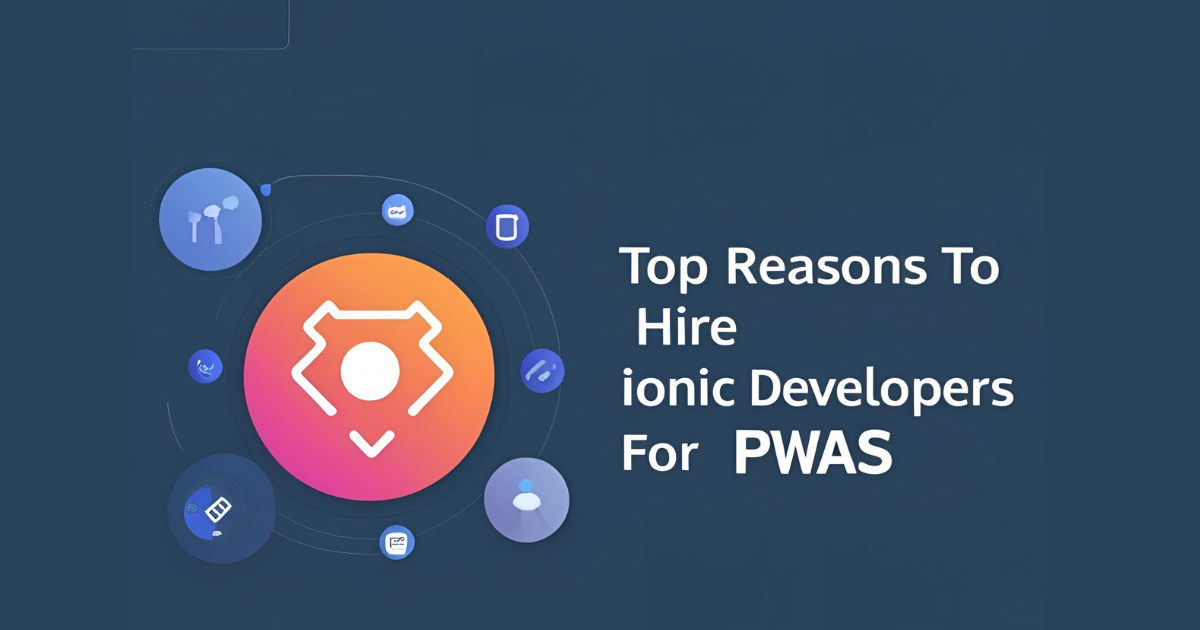
As the demand for high-performing, cross-platform digital experiences continues to grow, Progressive Web Apps (PWAs) are becoming an industry standard for businesses wanting the best of web and mobile in one solution. One of the most powerful tools for building robust PWAs is the Ionic framework, which combines web standards with mobile-ready components.
To unlock the full potential of this framework, it’s essential to hire Ionic developers who understand the intricacies of both mobile and web ecosystems. In this article, we explore why Ionic is ideal for PWAs and why hiring the right developers can make or break your product’s success.
-
53% of mobile users abandon sites that take longer than 3 seconds to load. PWAs built with Ionic load faster due to optimized bundles and caching (Google, 2023).
-
Businesses that adopted PWAs saw a 36% increase in conversion rates on average (Forrester Research, 2024).
-
Using Ionic, developers can reduce code duplication by 60-80%, accelerating deployment and maintenance cycles (Ionic Dev Survey, 2024).
What Are Progressive Web Apps (PWAs)?
PWAs are web applications that provide a mobile-app-like experience through modern web technologies. They work in any browser, are installable on the user’s device, function offline, and deliver push notifications—much like native apps.
Key Features of PWAs:
-
Offline capabilities using service workers
-
Responsive design
-
App shell model for fast loading
-
Background synchronization
-
Secure (HTTPS)
-
Add-to-home-screen functionality
Why Ionic Is a Great Choice for PWA Development
The Ionic framework is built on top of modern web technologies like HTML, CSS, and JavaScript, while integrating with Angular, React, or Vue. Its compatibility with Capacitor, a native runtime for deploying web apps to mobile platforms, makes it a powerful tool for developing PWAs that work like native mobile apps.
Ionic provides pre-designed components, tools for performance optimization, and integration-ready plugins, all of which speed up PWA development without sacrificing user experience.
Top Reasons to Hire Ionic Developers for PWAs
1. Cross-Platform Development
Ionic allows developers to write once and deploy everywhere—web, iOS, Android, and desktop. When you hire Ionic developers, you’re investing in professionals who can deliver a PWA that performs across all major platforms using a single codebase.
Stat: Companies using cross-platform development frameworks like Ionic report 30-50% savings in development and maintenance costs compared to native development (Source: Statista, 2024).
2. Native-Like Performance
Modern Ionic PWAs feel fast and responsive, closely mimicking the performance of native apps. Skilled Ionic developers understand how to optimize animations, gestures, and transitions to achieve smooth performance.
3. Reusable Codebase
Hiring Ionic developers means getting the benefit of a unified codebase that supports both your website and your mobile app. This drastically reduces the time and effort required for updates, debugging, and feature rollouts.
4. Strong Community and Plugin Ecosystem
With thousands of plugins and an active developer community, Ionic developers can rapidly integrate essential features such as authentication, geolocation, push notifications, and analytics into your PWA.
5. Fast Development with Capacitor
Capacitor is the official native runtime for Ionic apps and supports modern web APIs while offering access to native SDKs when needed. Developers who specialize in Ionic know how to leverage Capacitor for building advanced PWAs with native integrations.
6. Seamless UI and UX Design
Ionic provides pre-styled components that automatically adapt to the platform they run on (Material Design for Android, Cupertino for iOS). Experienced Ionic developers can build highly polished, consistent interfaces that appeal to both iOS and Android users.
7. Offline Support and App-Like Functionality
One of the major selling points of PWAs is offline functionality. Ionic developers can implement service workers effectively to ensure your app continues to function even with poor or no internet connectivity.
8. Cost-Effectiveness
When you hire Ionic developers, you’re choosing an approach that allows faster time-to-market and lower operational costs. There’s no need to maintain separate codebases or hire two separate teams for iOS and Android.
Real-World Examples
Sworkit
A fitness app using Ionic for cross-platform development and delivering PWA support with seamless UI on mobile and desktop.
Diesel
The global fashion retailer transitioned its mobile site into a PWA using Ionic and saw a 40% increase in engagement.
How to Hire Ionic Developers Effectively
What to Look for:
-
Experience with Ionic, Capacitor, and Angular/React/Vue
-
Proven track record of building and deploying PWAs
-
Familiarity with service workers and offline caching
-
Understanding of responsive and mobile-first UI design
-
Knowledge of backend integration (Firebase, REST APIs, etc.)
Pro Tips:
-
Request code samples and app store links
-
Evaluate their performance optimization strategies
-
Ask about real-world PWA projects they’ve handled
If you’re serious about building a high-performance PWA, don’t compromise—hire Ionic developers with the right technical and design expertise.
Conclusion
In today’s mobile-first, fast-paced environment, building apps that are accessible, reliable, and fast is not a luxury—it’s a necessity. PWAs provide the perfect bridge between web and native apps, and the Ionic framework stands out as one of the best tools for creating them.
Choosing to hire Ionic developers for your PWA ensures a quicker launch, consistent user experience, and reduced long-term costs. With the right team in place, you can deliver a powerful cross-platform solution that meets user expectations and business goals alike.
FAQs
1. Why should I hire Ionic developers for my PWA instead of native developers?
Hiring Ionic developers enables you to use a single codebase across platforms, which reduces time, cost, and complexity.
2. Is Ionic suitable for large-scale PWA applications?
Yes. With proper architecture and optimization, Ionic supports scalable enterprise-grade PWAs.
3. Can Ionic developers integrate native device features?
Yes. Through Capacitor and plugins, Ionic developers can access device APIs like camera, GPS, and file system.
4. How much does it cost to hire Ionic developers?
Costs vary by region and experience, but generally range from $25–$80/hour depending on complexity and scope.